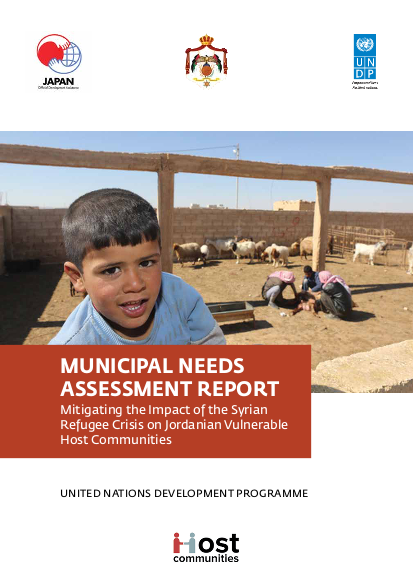
The majority of Syrian refugees in Jordan have settled in cities, towns, and villages in the northern governorates outside the refugee camps. As a result, one preoccupying challenge to the municipalities is providing adequate support for host communities whose services, resources, and infrastructure have been strained by the sudden and enormous influx of the refugees, with sometimes destabilising effects on their own livelihoods and natural environments.
Through this study, UNDP aims to establish the necessary baselines at the municipal level for examining the impact of the refugee crisis on host communities in Irbid and Mafraq. The assessment was undertaken through a survey and focus group meetings covering the 36 municipalities in the two governorates. Both the quantitative self-administered survey and qualitative focus group discussions are means for UNDP to understand the needs of Syrian refugees, vulnerable host communities, and municipalities. In addition, they enable UNDP to gauge the perceptions of civil society and community leaders through face-to-face discussions about the Syrian refugee crisis and its impact on the daily lives and livelihoods of their communities, and constituents.
Resource collections
- Evaluating humanitarian action
- Monitoring and Evaluation (M&E)
- Monitoring of humanitarian action
- Topics
- UN Habitat - Urban Response Collection
- Urban Response - Urban Crisis Preparedness and Risk Reduction
- Urban Response Collection - Community Engagement and Social Cohesion
- Urban Response Collection - Economic Recovery
- Urban Response Collection - Environment and Climate Change
- Urban Response Collection - Housing, Land and Property
- Urban Response Collection - Urban Crisis Response, Recovery and Reconstruction
- Urban Response Collection - Urban Resilience
- Use of evaluation evidence